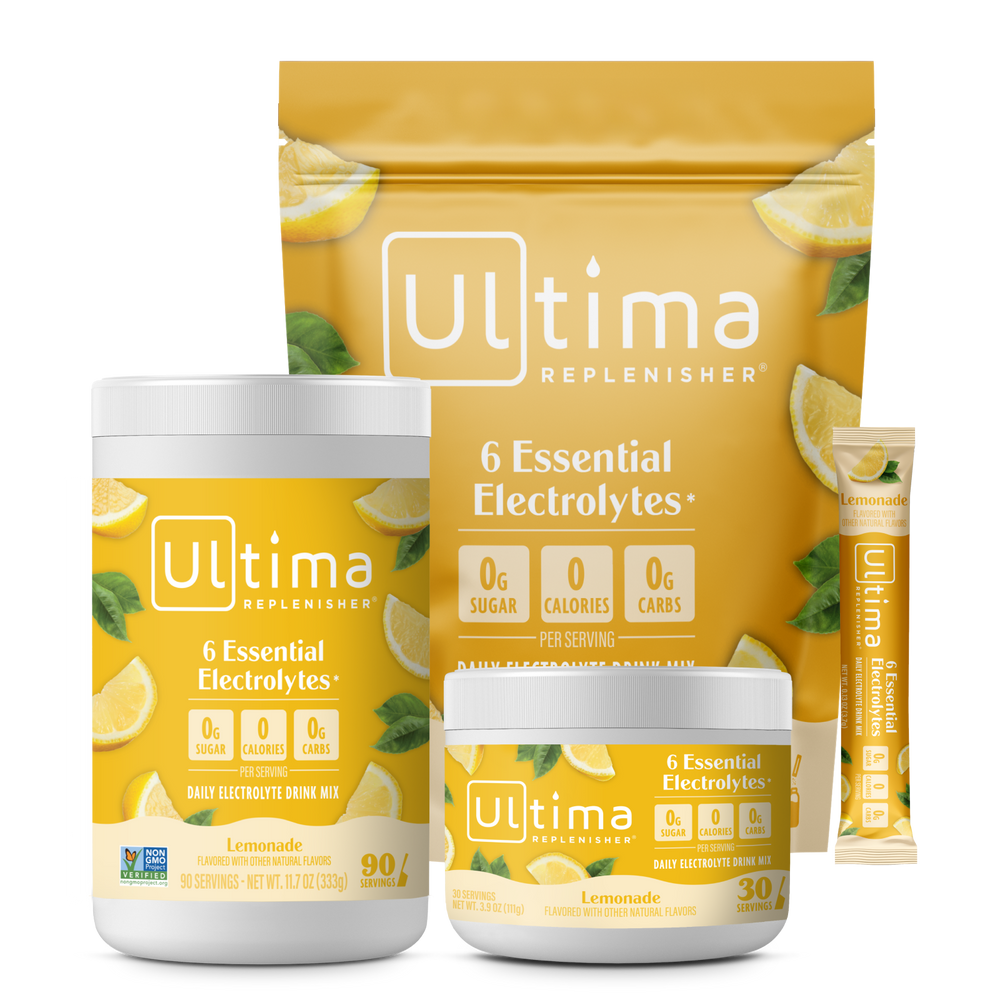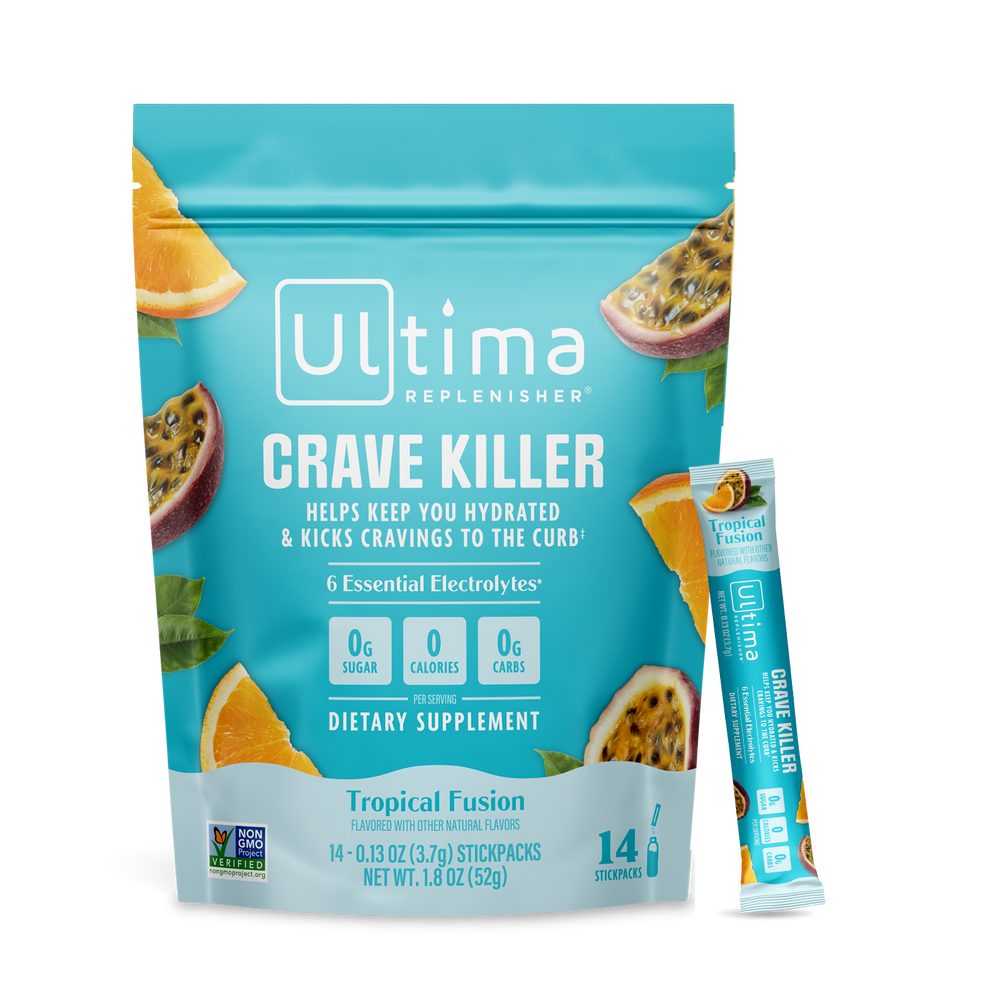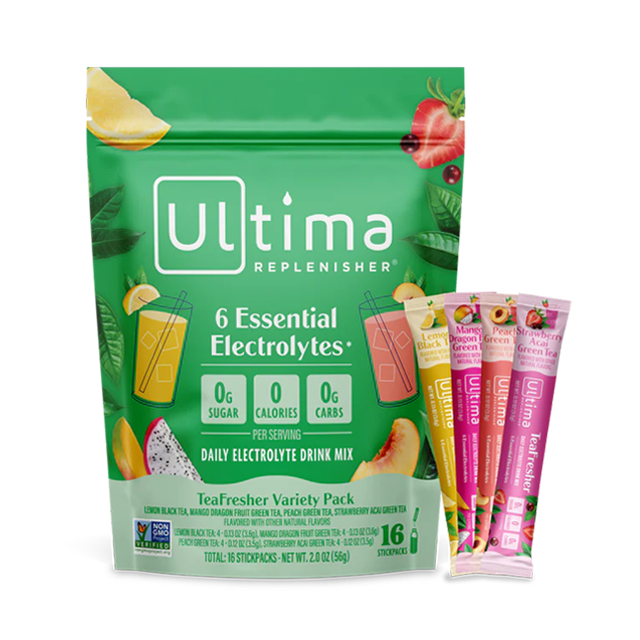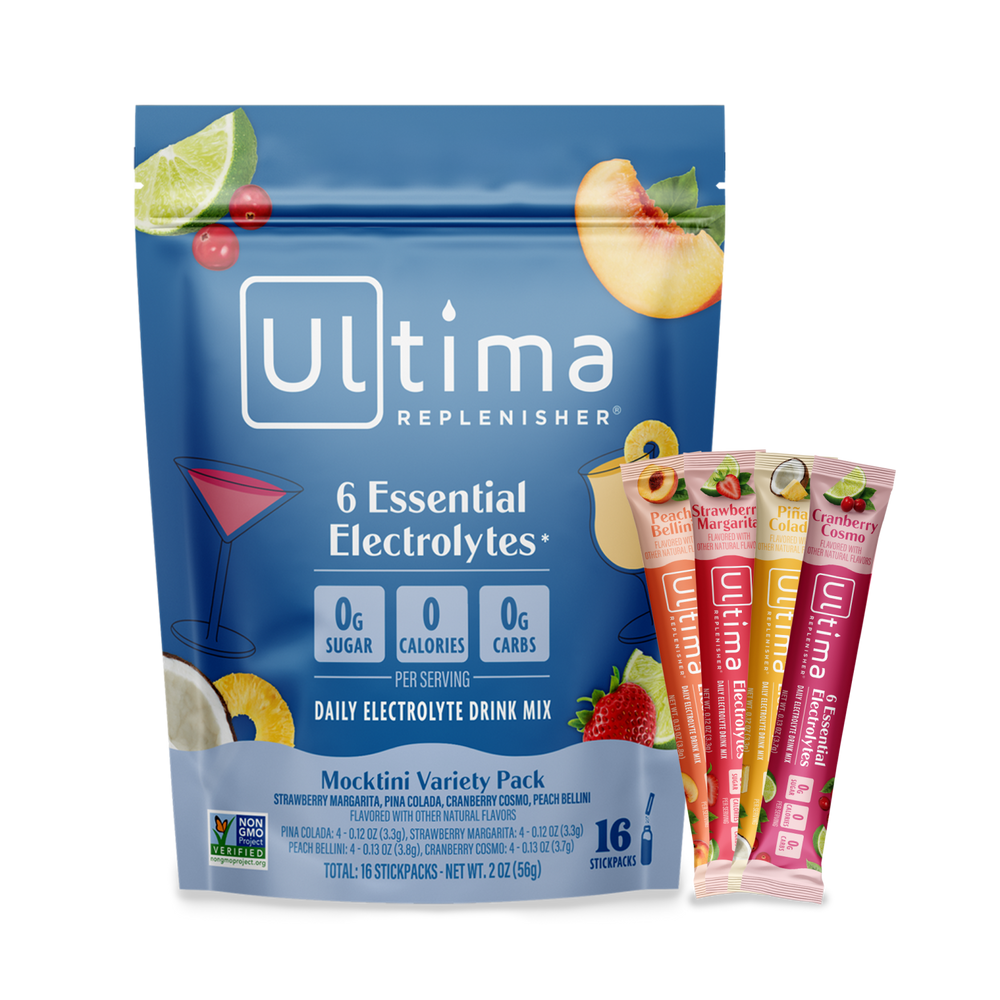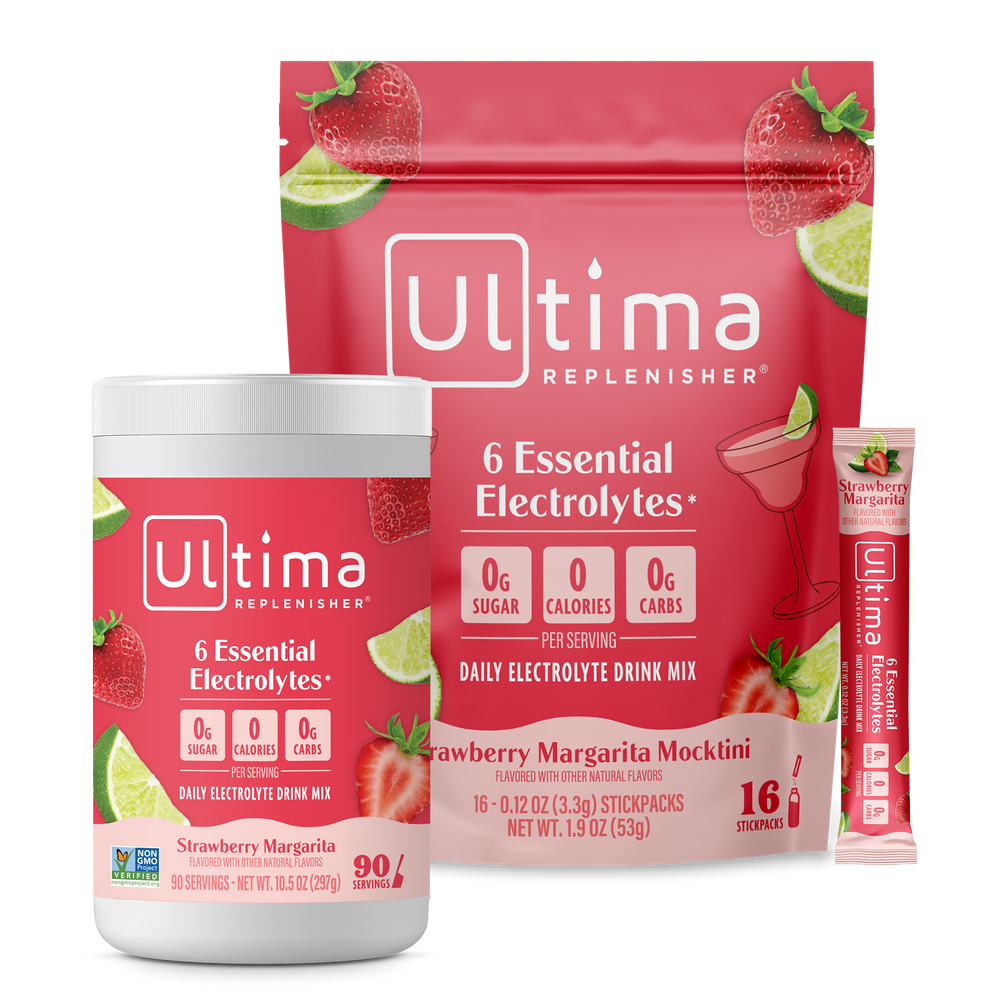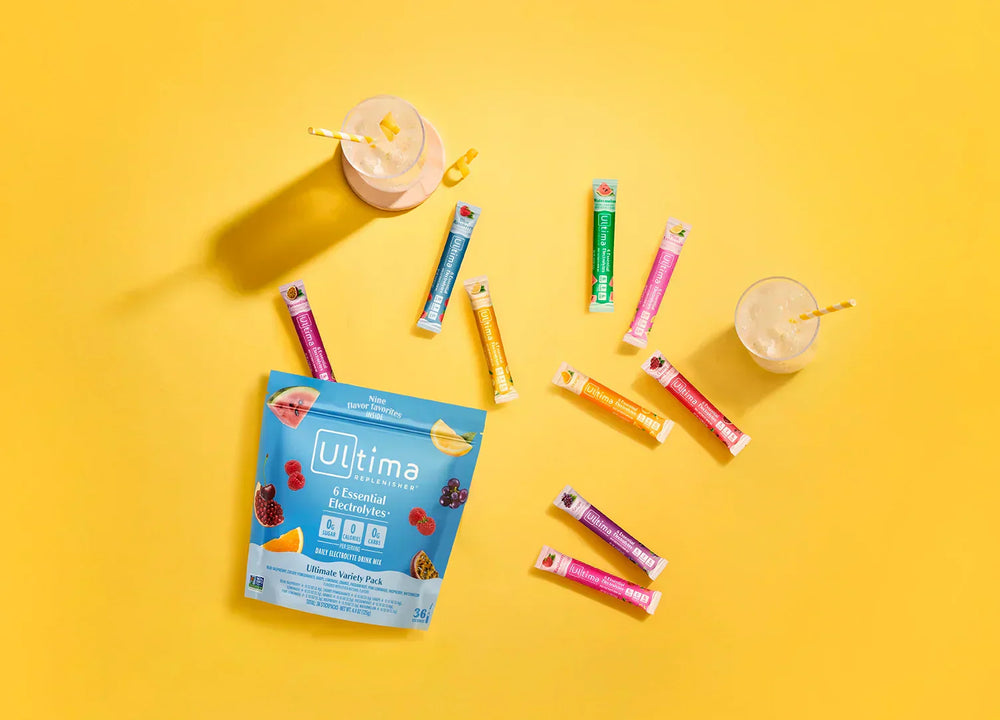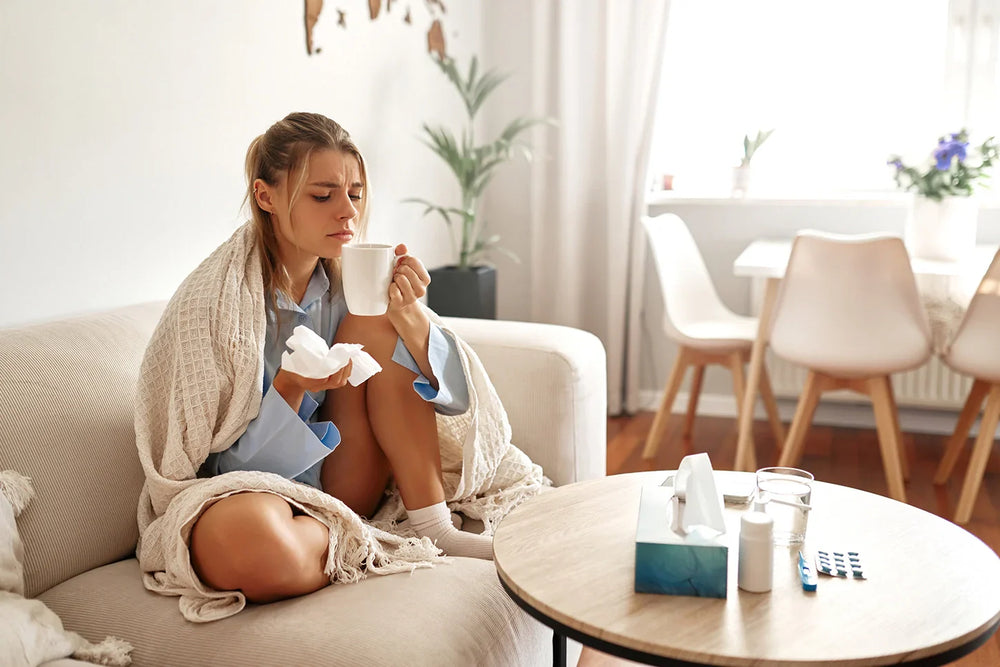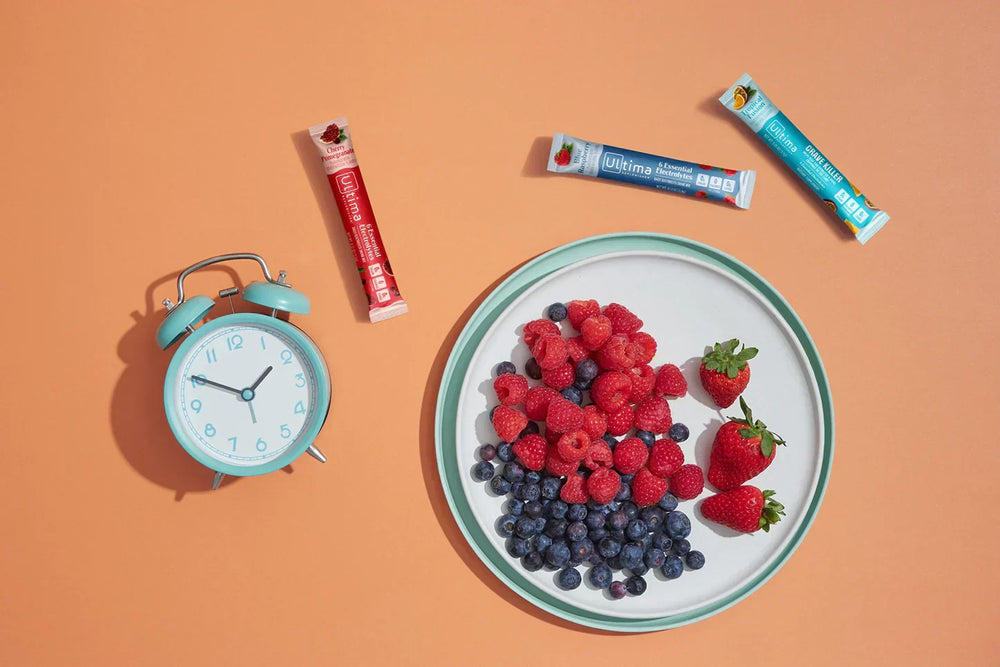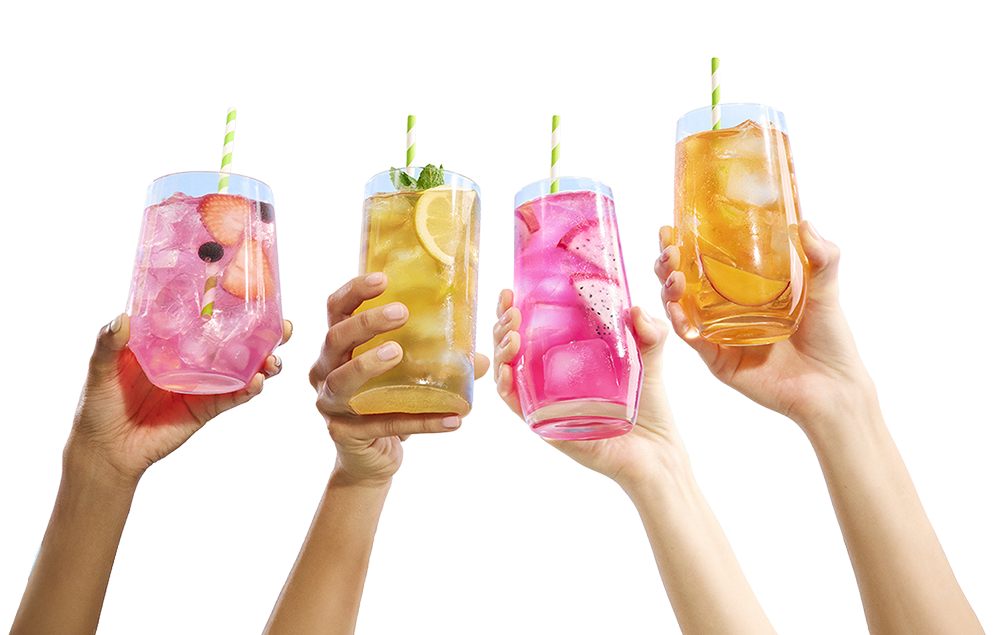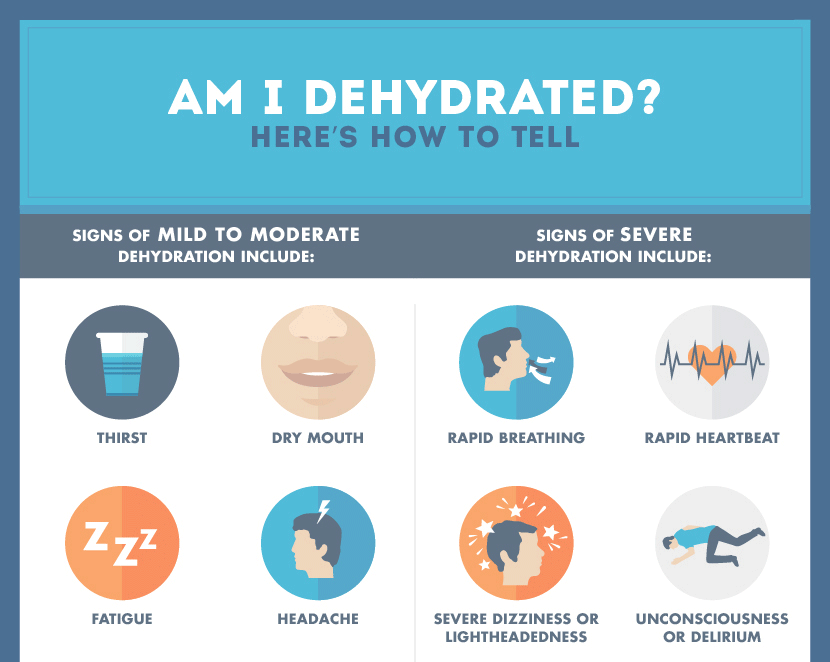
10 Signs of Dehydration: What Your Body Is Trying to Tell You
Dehydration is more common than you might think, and it doesn’t only happen after a sweaty workout or a hot day in the sun. Even mild dehydration can impact your energy, mental clarity and overall health. If you’ve ever had headaches, fatigue or sugar cravings, your body could be signalling that it’s time to rehydrate. Recognizing these signs early can help prevent more serious health problems and keep your body performing at its best.
Is your body craving hydration? Continue reading to discover the 10 key signs of dehydration.
Why hydration matters more than you think
The role of water in the body
Water makes up about 60% of the human body, and every single cell depends on it to function correctly. Water helps regulate your body temperature, supports digestion, carries nutrients where they need to go, cushions your joints and even supports your brain function. When you're not adequately hydrated, these systems can start to slow down, which might cause symptoms that affect your daily life.
Read more: What Happens When Your Body is Low on Electrolytes.
What causes dehydration?
Dehydration happens when your body loses more fluids than it takes in, which can occur from sweating, illness (like vomiting or diarrhea), hot weather, intense workouts or not drinking enough water. Caffeine, alcohol and some medications can also speed up fluid loss. That's why it's essential to stay well-hydrated throughout the day.
10 signs of dehydration you shouldn’t ignore
1. You might notice a dry mouth and bad breath
Your mouth feels sticky, dry or rough, especially in the morning or after talking for a long time. You might also notice a persistent unpleasant odor, even after brushing your teeth or chewing gum.
Why it happens:
When you're dehydrated, your body conserves water and reduces saliva production. Saliva is essential for rinsing away food particles and neutralizing bacteria. Without it, bacteria thrive, leading to bad breath and that uncomfortable dry mouth feeling. It can also make it harder to speak, swallow or taste food properly.
What to do about it:
Sip water regularly throughout the day instead of waiting until you’re thirsty, and incorporate hydrating foods like fruits and vegetables. You can also chew sugar-free gum to stimulate saliva, but the root fix to most cases of dry mouth is staying consistently hydrated.
2. Your urine is darker, or you’re going less often
Urine is your body’s built-in hydration meter. If your urine is light yellow, you're likely properly hydrated. If you notice a darker shade, like deep yellow or amber, or you're not making as many bathroom trips as usual, it could be a sign that your system is conserving fluids.
Why it happens:
Urine color and frequency are two of the clearest indicators of hydration. When you're well-hydrated, your body has enough fluid to flush out waste regularly and keep urine diluted, but when you're dehydrated, your kidneys conserve water, making urine more concentrated and darker in color.
What to do about it:
Aim to drink water consistently throughout the day rather than all at once. Carry a water bottle, track your intake if needed, and listen to your body. Keep in mind that certain foods, vitamins and medications can affect urine color too, but if the change is consistent, you need to hydrate.
3. You’re feeling headaches or dizziness
Your body isn’t subtle when it’s thirsty. Sometimes you might feel a light pressure behind your eyes, and other times you might experience a full-blown headache or dizziness.
Why it happens:
When you're dehydrated, your blood volume drops, which can reduce the flow of oxygen and nutrients to your brain. That reduced circulation can trigger headaches, dizziness or migraines.
These symptoms are your body’s way of waving a flag to get your attention, especially if you’ve spent time in heat, worked out or didn’t drink enough fluid.
What to do about it:
When you first feel a headache or dizziness creeping in, try sipping water slowly and consistently. Resting in a cool, shaded environment can also help.
If you’re losing fluids through sweat, vomiting or illness, consider adding electrolytes to your hydration routine to help your body rehydrate more effectively.
4. You’re experiencing fatigue and low energy
You got a whole night’s sleep, skipped your workout, and still feel like you’re running on empty. Your limbs feel heavy, your brain feels foggy, and even simple tasks feel like a chore.
If your energy has mysteriously disappeared, you might be dehydrated.
Why it happens:
Water plays a vital role in nearly every system in your body, from digestion to circulation to regulating your internal temperature. When your fluids are low, those processes slow down, forcing your body to work harder just to function. That added strain can leave you feeling sluggish, foggy and flat-out exhausted.
What to do about it:
Make hydration a habit, not an afterthought. Keep a water bottle nearby and sip regularly, even when you’re not thirsty. Eating water-rich foods like cucumbers, berries and citrus fruits can give your hydration an extra boost.
If you're active or sweating more than usual, consider replenishing with electrolytes to help restore balance.
5. You’re getting muscle cramps or feeling weak
One minute you’re fine, the next your calf tightens like a knot, or your arm starts twitching for no clear reason.
You may feel a sudden jolt of pain or slow, creeping weakness that makes everyday movement feel uncomfortable. If your muscles aren’t working with you, your hydration levels might be the missing link.
Why it happens:
When you sweat, you lose water, but you also lose key electrolytes like sodium, potassium and magnesium, which help your muscles contract and relax properly.
Without enough fluids and electrolytes, your muscles can misfire or struggle to function, leading to cramps, twitching or weakness.
What to do about it:
Sip water consistently throughout the day. Electrolyte drinks or potassium-rich snacks (like bananas) can support your electrolyte levels. Stretching and gentle movement can help relieve cramps and discomfort.
6. Dry skin and sunken eyes
Your mirror might spill the secret before you feel it; your skin looks a little off. Maybe it’s tighter than usual, flaky or just lacking its usual glow. Your under-eyes might appear darker or more hollow, adding a worn-out look even after a full night’s rest.
These small changes in your skin and face may mean that you’re dehydrated.
Why it happens:
Your skin is your body’s largest organ, so it’s one of the first places to show signs of dehydration. Your body prioritizes essential organs over skin health, which can lead to reduced elasticity, dryness, and a lackluster appearance when you’re dehydrated. In more severe cases, the tissue around your eyes can lose volume, causing a sunken or shadowed look.
Read more: Does Drinking Water Help Dry Skin? What Actually Works for Deep Hydration.
What to do about it:
Support your skin from the inside out by drinking water regularly and eating hydrating foods like cucumbers, melons and leafy greens. If you’ve been in the sun or wind, or if you're recovering from illness, your body may need more fluids than usual. While moisturizers help lock in hydration, your skin relies heavily on how you hydrate.
Formulated with 6 daily electrolytes, Ultima Replenisher Collagen Defense supports your daily hydration while delivering Dermaval® to help protect collagen and Biotin to promote healthy skin, hair, and nails.*
*These statements have not been evaluated by the Food & Drug Administration. This product is not intended to diagnose, treat, cure or prevent any disease
7. Your heartbeat or breathing is faster than normal
Sometimes your body sounds the alarm before you even realize something’s wrong. Your heart may start pounding out of nowhere, or your breathing might feel short and quick, even if you’re sitting still.
If your pulse is rising and you don’t know why, you might be dehydrated.
Why it happens:
When you're dehydrated, your blood volume drops, making it harder for your heart to pump oxygen and nutrients efficiently.
To compensate, your heart beats faster and your breathing may increase to keep up with the body’s oxygen demands. This can feel like fluttering, pounding or light breathlessness, even when you’re sedentary.
What to do about it:
Slow down and start rehydrating. Small, steady sips of water or an electrolyte drink can help your system recover. If you’re sweating heavily, sick or haven’t had much to drink all day, your body may need more than just plain water. Electrolyte drinks can help restore balance and support circulation.
8. You’re experiencing brain fog or trouble concentrating
If your body’s running low on fluids, your brain might start to lag. You may find yourself rereading the same sentence over and over, letting your to-do list pile up while nothing gets done. That heavy, slow-motion feeling, like your brain is wading through molasses, is a common sign of dehydration.
Why it happens:
Even mild dehydration can affect cognitive function. Your brain relies on proper fluid balance to maintain alertness, focus and memory. When hydration dips, so does blood flow to the brain, leading to slower processing, forgetfulness and difficulty concentrating.
What to do about it:
Drink water regularly throughout the day instead of waiting until you’re thirsty. If you’re working, studying or stuck in front of a screen for long periods, keep a glass or bottle nearby and remind yourself to take hydration breaks.
9. Mood swings and irritability
Your patience is thin, your emotions are loud and everything feels overwhelming. One minute you’re fine, and the next you’re snapping at a slow-loading webpage or tearing up over a commercial.
If your emotions feel like they’re swinging out of nowhere, it might be a stress or hormone-related issue… but it might also be your hydration levels!
Why it happens:
Dehydration can seriously affect your mood. When your brain doesn’t get the fluids it needs, it can affect neurotransmitter function and increase levels of cortisol, the stress hormone.
That shift can lead to irritability, anxiety, or sudden emotional dips that feel disproportionate to what’s actually happening.
What to do about it:
Before writing off your bad mood as “just a rough day,” try reaching for water. Consistent hydration can help regulate both physical and mental well-being. If you’ve been sweating, traveling, or just forgetting to drink throughout the day, your body and brain may simply need more fluids.
10. Sugar or salt cravings
You just ate, but now you’re eyeing the chips, or maybe you're craving something sweet even though you're not hungry. If your cravings seem random or unusually strong, your body might not be asking for snacks; it might be asking for hydration.
Why it happens:
When your body is low on fluids and electrolytes, it can send mixed signals to the brain. Cravings for salty foods may be your body’s attempt to replenish sodium and other essential minerals lost through sweat or urination.
Sugar cravings can also occur, as dehydration can affect energy levels and trick your body into thinking it needs a quick fuel source, when what it really needs is proper hydration.
What to do about it:
Next time a craving hits, try drinking a glass of water first and see if it eases up. If you’re really hungry despite eating, hydrating snacks like fruit or yogurt can also help satisfy cravings while replenishing fluids.
Who’s most at risk of dehydration?
While anyone can become dehydrated, some people are more vulnerable due to how their bodies respond to fluid loss, or by how easy it is for their hydration needs to go unmet. Here’s a breakdown of who’s most at risk and why:
-
Infants and young children
With smaller bodies and faster metabolisms, kids lose fluids more quickly than adults, especially when they’re sick with fever, diarrhea or vomiting. Since they may not recognize thirst or be able to ask for water, it’s up to caregivers to keep a close eye on their hydration levels.
-
Older adults
Aging naturally reduces the sensation of thirst, and some older adults may have mobility issues or cognitive decline that make it harder to stay hydrated.
-
People with chronic illnesses
Some health conditions, such as diabetes, kidney issues or adrenal disorders, can cause you to quickly lose fluids or make it harder for your body to retain water.
Certain medications, like diuretics, can add to the problem by flushing out even more fluids from your body.
-
People in hot or high-altitude environments
When it’s hot out, you sweat more, and that means more fluid loss. At high altitudes, your breathing speeds up, which can lead to losing more water through each breath, even if you don’t feel sweaty.
How to rehydrate effectively
Water is essential, but it doesn’t replenish everything your body needs. When you lose fluids, whether through sweat, illness or daily activity, you also lose electrolytes, including sodium, potassium, magnesium, calcium, chloride and phosphorus.
-
Calcium is important for nerve transmission, muscle contractions, nerve function and blood flow.
-
Chloride helps regulate the amount of fluids, oxygen and nutrients going in and out of cells. It also supports healthy tendons and joints.
-
Magnesium helps prevent cramps, helps convert glucose to energy and regulates muscle and nerve function.
-
Potassium supports the heart muscle, nerve transmission and muscle contraction. It works with sodium to maintain fluid balance in the body.
-
Sodium works with potassium to help balance fluids and muscle expansion and contraction. It also helps regulate blood pressure and remove excess carbon dioxide.
-
Phosphorus helps deliver oxygen to your muscles. It also supports nerve signaling and cell and tissue repair.
When your electrolytes are depleted, you may experience symptoms like muscle cramps, fatigue, dizziness, brain fog or even an irregular heartbeat. In more extreme cases, low electrolyte levels can disrupt how your body functions at a cellular level.
That’s why water alone isn’t always enough, especially if you’re sweating, sick or physically active. To fully restore what your body loses, it’s important to rehydrate with electrolyte drink mixes that replenish your fluid and electrolyte levels.
Replenish electrolytes with clean hydration
Unlike many sports drinks loaded with sugar and artificial additives, Ultima Replenisher delivers 6 daily electrolytes with 0 sugar, calories or carbs.
With fruity, hydrating plant-based flavors and stickpacks that are great on the go, it’s an easy way to replenish whenever, wherever.
Want to mix things up? Try our refreshing zero-sugar electrolyte mocktini recipes for a fun and flavorful way to hydrate!
Stay ahead of dehydration, one sip at a time
Your body’s always dropping hints; you just have to know how to notice them. Feeling foggy, weak, cranky or suddenly craving a snack? Those might be signs of dehydration, and proper replenishment may be all you need to bounce back.
Pair your water with a high-quality electrolyte mix like Ultima Replenisher, and you’ll give your body the hydration it needs to perform, recover and feel good all day long.
